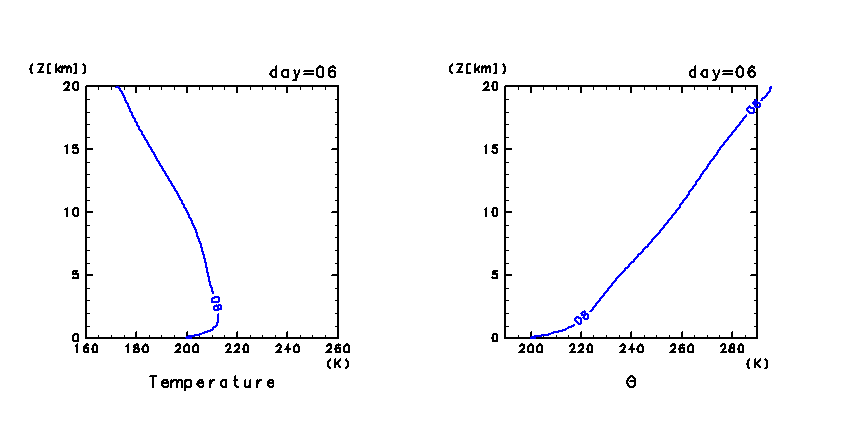|
4.b. Horizontal mean fields
|
Figure 12a shows the diurnal variation
of the vertical profiles of horizontal mean temperature
and potential temperature of
the 6th day,
when the amount of atmospheric dust
reaches almost the equilibrium value.
The profiles of horizontal mean temperature
and potential temperature show fairly regular diurnal
change,
while that of atmospheric dust shows little change
(Figure 11b).
The depth of convection layer during daytime is about 5km,
which is roughly a half of that in the dust-free case
(Figure 3e).
The reason for the decrease of the depth of convection layer is
the stratospheric temperature increase
due to the radiative
heating caused by the dust absorption of solar radiation.

|
|
Figure 12a:
Time development of the vertical profiles of horizontal mean
temperature (left panel) and potential temperature (right
panel) of the dusty case.
Profiles are for every 4 hours from LT = 8:00
of the sixth day.
|
Other results of horizontal mean field
|